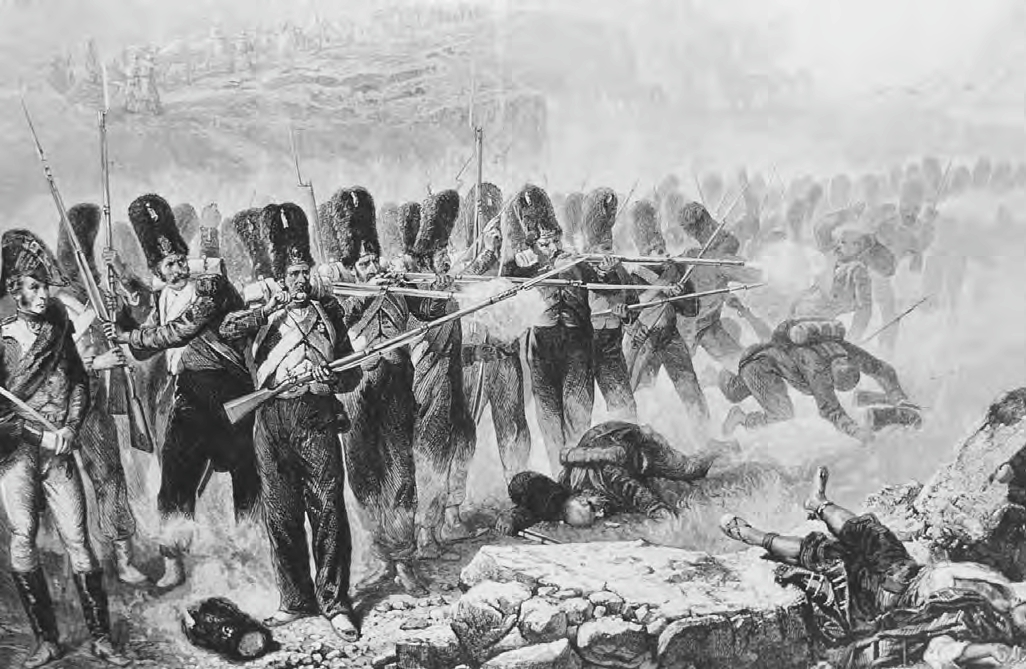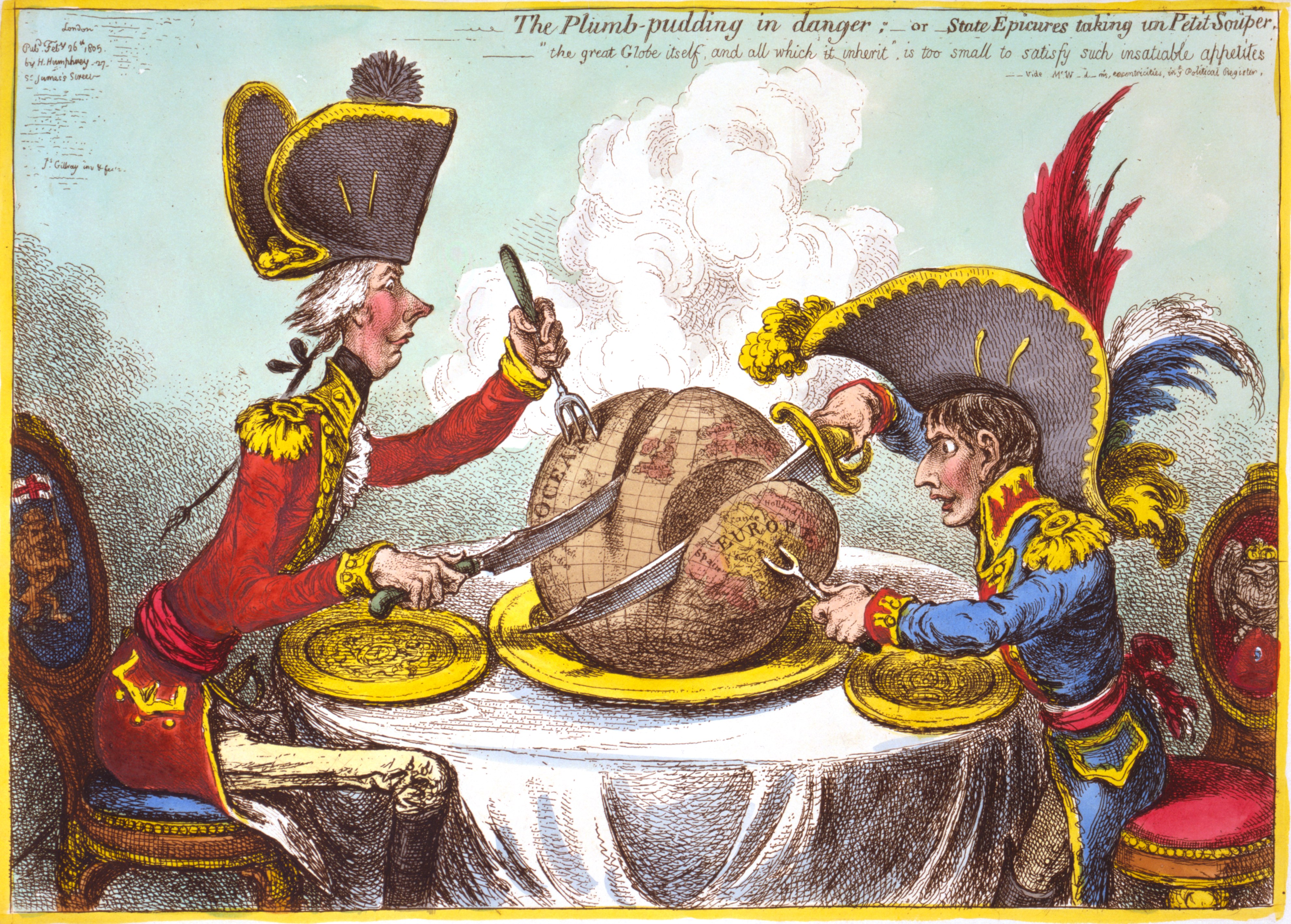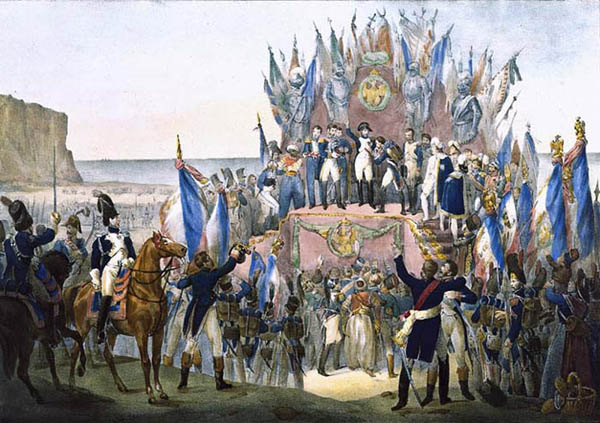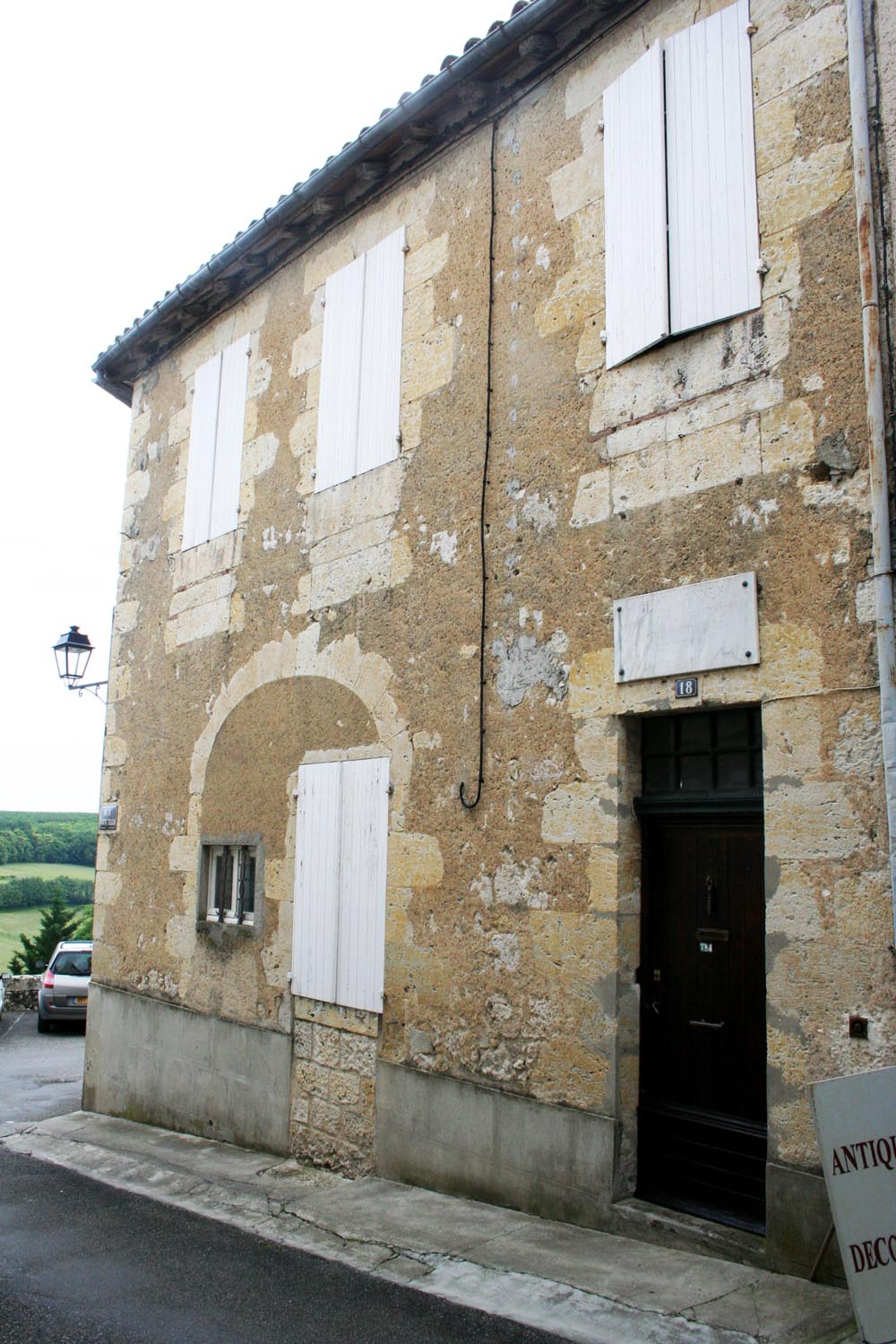|
Claude-Étienne Michel
General Claude-Étienne Michel (3 October 1772 – 18 June 1815), an officer in Napoleon, Napoleon's army, eventually rose to second in command of the Chasseur Division of the Imperial Guard and commander of the Brigade of the Middle Guard. He may actually be the officer who uttered the words often attributed to Pierre Cambronne "''La Garde meurt et ne se rend pas''" "The Imperial Guard (Napoleon I), Guard dies, and does not surrender".D.H. Parry (c. 1900) ''Battle of the nineteenth century'', Vol 1 Cassell and Company: LondonWaterloo Life Michel was born in Pointre in the Jura (department), Jura, the son of a surgeon. Revolutionary Wars During the French Revolution and the surrounding War of the First Coalition he enlisted in the Sans-culottes, '6th battalion of volunteers from the Jura department' on 1 October 1791. He was a Sergeant Major by the 15th of the month and promoted to Sous-Lieutenant on March 4, 1792. then Lieutenant on the 22 August 1792, and was made a Captain on ... [...More Info...] [...Related Items...] OR: [Wikipedia] [Google] [Baidu] |
Claude-Étienne Michel
General Claude-Étienne Michel (3 October 1772 – 18 June 1815), an officer in Napoleon, Napoleon's army, eventually rose to second in command of the Chasseur Division of the Imperial Guard and commander of the Brigade of the Middle Guard. He may actually be the officer who uttered the words often attributed to Pierre Cambronne "''La Garde meurt et ne se rend pas''" "The Imperial Guard (Napoleon I), Guard dies, and does not surrender".D.H. Parry (c. 1900) ''Battle of the nineteenth century'', Vol 1 Cassell and Company: LondonWaterloo Life Michel was born in Pointre in the Jura (department), Jura, the son of a surgeon. Revolutionary Wars During the French Revolution and the surrounding War of the First Coalition he enlisted in the Sans-culottes, '6th battalion of volunteers from the Jura department' on 1 October 1791. He was a Sergeant Major by the 15th of the month and promoted to Sous-Lieutenant on March 4, 1792. then Lieutenant on the 22 August 1792, and was made a Captain on ... [...More Info...] [...Related Items...] OR: [Wikipedia] [Google] [Baidu] |
Battle Of Bergen (1799)
The Battle of Bergen was fought on 19 September 1799 and resulted in a Franco-Dutch victory under Generals Guillaume Brune and Herman Willem Daendels against the Russians and British under the Duke of York who had landed in North Holland. The battlefield is marked by the Russisch Monument (1902). Order of battle The Duke of York landed on 15 September, and assumed the command of the army, which now amounted to about 30,000 men with 1,200 light cavalry. On 19 September the forces, under the Duke of York, formed in four columns, moved forward from Schagerbrug. At this period the Allies possessed a superiority of force with which it was decided to strike a decisive blow as early as possible. The Dutch, numbering 12,000, were in a strong position around Langedijk, somewhat in advance of the French, who, by drawing in all detachments, had raised their field strength to 10,000 men, who were positioned in Alkmaar, Bergen, Schoorl, and Egmond aan Zee. Anglo-Russian Forces P ... [...More Info...] [...Related Items...] OR: [Wikipedia] [Google] [Baidu] |
Hugues-Bernard Maret
Hugues-Bernard Maret (, 1 May 1763 – 13 May 1839), 1st Duke of Bassano (''Duc de Bassano''), was a French statesman, diplomat and journalist. Biography Early career Maret was born in Dijon, in the province of Burgundy, as the second son of a physician and scholar at the Academy of Dijon. Destined for a medical career by his father, he instead decided to study Law, and after receiving a solid education Maret entered the legal profession, becoming a lawyer at the King's Council in Paris. The ideas of the French Revolution profoundly influenced him, wholly altering his career. The interest aroused by the debates of the first National Assembly suggested to him the idea of publishing them in the ''Bulletin de l'Assemblée''. The journalist Charles-Joseph Panckoucke (1736–1798), owner of the ''Mercure de France'' and publisher of the famous ''Encyclopédie'' (1785), persuaded him to merge this in a larger paper, ''Le Moniteur Universel'', which gained a wide repute for corre ... [...More Info...] [...Related Items...] OR: [Wikipedia] [Google] [Baidu] |
Commissariat
A commissariat is a department or organization commanded by a commissary or by a corps of commissaries. In many countries, commissary is a police rank. In those countries, a commissariat is a police station commanded by a commissary. In some armies, commissaries are logistic officers. In those countries, a commissariat is a department charged with the provision of supplies, both food and forage, for the troops. The supply of military stores such as ammunition is not included in the duties of a commissariat. In almost every army the duties of transport and supply are performed by the same corps of departmental troops. British Army 17th century When James II mustered an army on Hounslow Heath in 1685, he appointed a certain John Shales as Commissary General of provisions, responsible for sourcing, storing and issuing food for the troops and forage for the horses. In addition he was to license and regulate sutlers, to procure wagons, carriages, horses and drivers when required ... [...More Info...] [...Related Items...] OR: [Wikipedia] [Google] [Baidu] |
Jean Philibert Maret
Jean may refer to: People * Jean (female given name) * Jean (male given name) * Jean (surname) Fictional characters * Jean Grey, a Marvel Comics character * Jean Valjean, fictional character in novel ''Les Misérables'' and its adaptations * Jean Pierre Polnareff, a fictional character from ''JoJo's Bizarre Adventure'' Places * Jean, Nevada, USA; a town * Jean, Oregon, USA Entertainment * Jean (dog), a female collie in silent films * "Jean" (song) (1969), by Rod McKuen, also recorded by Oliver * ''Jean Seberg'' (musical), a 1983 musical by Marvin Hamlisch Other uses * JEAN (programming language) * USS ''Jean'' (ID-1308), American cargo ship c. 1918 * Sternwheeler Jean, a 1938 paddleboat of the Willamette River See also * Jehan * * Gene (other) * Jeanne (other) * Jehanne (other) * Jeans (other) Jeans are denim trousers. Jeans may also refer to: Astronomy * Jeans (lunar crater) * Jeans (Martian crater) * 2763 Jeans, an asteroi ... [...More Info...] [...Related Items...] OR: [Wikipedia] [Google] [Baidu] |
Old Guard (France)
The Old Guard (french: Vieille Garde) were the veteran elements of the Emperor Napoleon's Imperial Guard. As such it was the most prestigious formation in Napoleon's ''Grande Armée''. French soldiers often referred to Napoleon's Old Guard as "the Immortals". Famously devoted to the Emperor, who even referred to them as "my children"; the members of his Old Guard were selected based on physical traits, most notably above-average height. Their imposing stature was likely impressive to foes and allies alike. Awards as well as veterancy were also taken into consideration when selecting troops for the Old Guard. Old Guard infantry There were four regiments of Old Guard infantry: 1st and 2nd each of grenadiers and chasseurs. Members of the Old Guard benefitted from a number of different privileges, including considerably increased wages from the Imperial Guard. Requirements for Old Guard candidates * under 35 years of age at entry * at least 10 years of service * at least three ca ... [...More Info...] [...Related Items...] OR: [Wikipedia] [Google] [Baidu] |
Battle Of Austerlitz
The Battle of Austerlitz (2 December 1805/11 Frimaire An XIV FRC), also known as the Battle of the Three Emperors, was one of the most important and decisive engagements of the Napoleonic Wars. The battle occurred near the town of Austerlitz in the Austrian Empire (modern-day Slavkov u Brna in the Czech Republic). The decisive victory of Napoleon's Grande Armée at Austerlitz brought the War of the Third Coalition to a rapid end, with the Treaty of Pressburg signed by the Austrians later in the month. The battle is often cited as a tactical masterpiece, in the same league as other historic engagements like Cannae or Gaugamela.Farwell p. 64. "Austerlitz is generally regarded as one of Napoleon's tactical masterpieces and has been ranked as the equal of Arbela, Cannae, and Leuthen."Dupuy p. 102 After eliminating an Austrian army during the Ulm Campaign, French forces seized Vienna in November 1805. The Austrians avoided further conflict until the arrival of the Russians bol ... [...More Info...] [...Related Items...] OR: [Wikipedia] [Google] [Baidu] |
War Of The Third Coalition
The War of the Third Coalition) * In French historiography, it is known as the Austrian campaign of 1805 (french: Campagne d'Autriche de 1805) or the German campaign of 1805 (french: Campagne d'Allemagne de 1805) was a European conflict spanning the years 1805 to 1806. During the war, France and its client states under Napoleon I opposed an alliance, the Third Coalition, made up of the United Kingdom, the Holy Roman Empire, the Russian Empire, Naples, Sicily and Sweden. Prussia remained neutral during the war. Britain had already been at war with France following the breakdown of the Peace of Amiens and remained the only country still at war with France after the Treaty of Pressburg. From 1803 to 1805, Britain stood under constant threat of a French invasion. The Royal Navy, however, secured mastery of the seas and decisively destroyed a Franco-Spanish fleet at the Battle of Trafalgar in October 1805. The Third Coalition itself came to full fruition in 1804–05 as Napol ... [...More Info...] [...Related Items...] OR: [Wikipedia] [Google] [Baidu] |
Grande Armée
''La Grande Armée'' (; ) was the main military component of the French Imperial Army commanded by Emperor Napoleon Bonaparte during the Napoleonic Wars. From 1804 to 1808, it won a series of military victories that allowed the French Empire to exercise unprecedented control over most of Europe. Widely acknowledged to be one of the greatest fighting forces ever assembled in history, it suffered enormous losses during the disastrous invasion of Russia in 1812, after which it never recovered its strategic superiority. The ''Grande Armée'' was formed in 1804 from the ''L'Armée des côtes de l'Océan'' (Army of the Ocean Coasts), a force of over 100,000 men that Napoleon had assembled for the proposed invasion of Britain. Napoleon later deployed the army in eastern Europe to eliminate the combined threat of Austria and Russia, which were part of the Third Coalition assembled against France. Thereafter, the name ''Grande Armée'' was used for the principal French Army d ... [...More Info...] [...Related Items...] OR: [Wikipedia] [Google] [Baidu] |
Jean Lannes
Jean Lannes, 1st Duke of Montebello, Prince of Siewierz (10 April 1769 – 31 May 1809), was a French military commander and a Marshal of the Empire who served during both the French Revolutionary and Napoleonic Wars. He was one of Napoleon's most daring and talented generals, and is regarded by many as one of history's greatest military commanders. Napoleon once commented on Lannes: ''"I found him a pygmy and left him a giant"''. A personal friend of the emperor, he was allowed to address him with the familiar '' tu'', as opposed to the formal '' vous''. Early life Lannes was born in the small town of Lectoure,Dunn-Pattison. p. 117. in the province of Gascony in Southern France. He was the son of a small landowner and merchant, Jeannet Lannes (1733–1812), son of Jean Lannes (d. 1746), a farmer, and his wife, Jeanne Pomiès (d. 1770), and paternal grandson of Pierre Lane and wife Bernarde Escossio (both died in 1721), and wife Cécile Fouraignan (1741–1799), daughter of ... [...More Info...] [...Related Items...] OR: [Wikipedia] [Google] [Baidu] |
Legion Of Honour
The National Order of the Legion of Honour (french: Ordre national de la Légion d'honneur), formerly the Royal Order of the Legion of Honour ('), is the highest French order of merit, both military and civil. Established in 1802 by Napoleon Bonaparte, it has been retained (with occasional slight alterations) by all later French governments and regimes. The order's motto is ' ("Honour and Fatherland"); its seat is the Palais de la Légion d'Honneur next to the Musée d'Orsay, on the left bank of the Seine in Paris. The order is divided into five degrees of increasing distinction: ' (Knight), ' (Officer), ' ( Commander), ' (Grand Officer) and ' ( Grand Cross). History Consulate During the French Revolution, all of the French orders of chivalry were abolished and replaced with Weapons of Honour. It was the wish of Napoleon Bonaparte, the First Consul, to create a reward to commend civilians and soldiers. From this wish was instituted a , a body of men that was not an o ... [...More Info...] [...Related Items...] OR: [Wikipedia] [Google] [Baidu] |
Ranks In The French Army
: ''See Ranks in the French Navy for more details about the naval ranks'' Rank insignia in the French Army are worn on the sleeve or on shoulder marks of uniforms, and range up to the highest rank of Marshal of France, a state honour denoted with a seven-star insignia that was last conferred posthumously on Marie Pierre Koenig in 1984. Infantry arms and cavalry arms Rank insignia in the French army depend on whether the soldier belongs to an infantry or cavalry unit. The infantry arms () include normal infantry, naval troops, the Foreign Legion and engineers; cavalry arms () include armoured cavalry, artillery, maintenance and logistics. Sleeves are emblazoned with marks denoting either gold insignia for the infantry or silver/white for the cavalry. However, the artillery uses gold as the main colour, despite being a cavalry branch, and spahis use gold as the main colour despite being part of the cavalry, a distinction representing the armoured cavalry. Marshal The title o ... [...More Info...] [...Related Items...] OR: [Wikipedia] [Google] [Baidu] |





